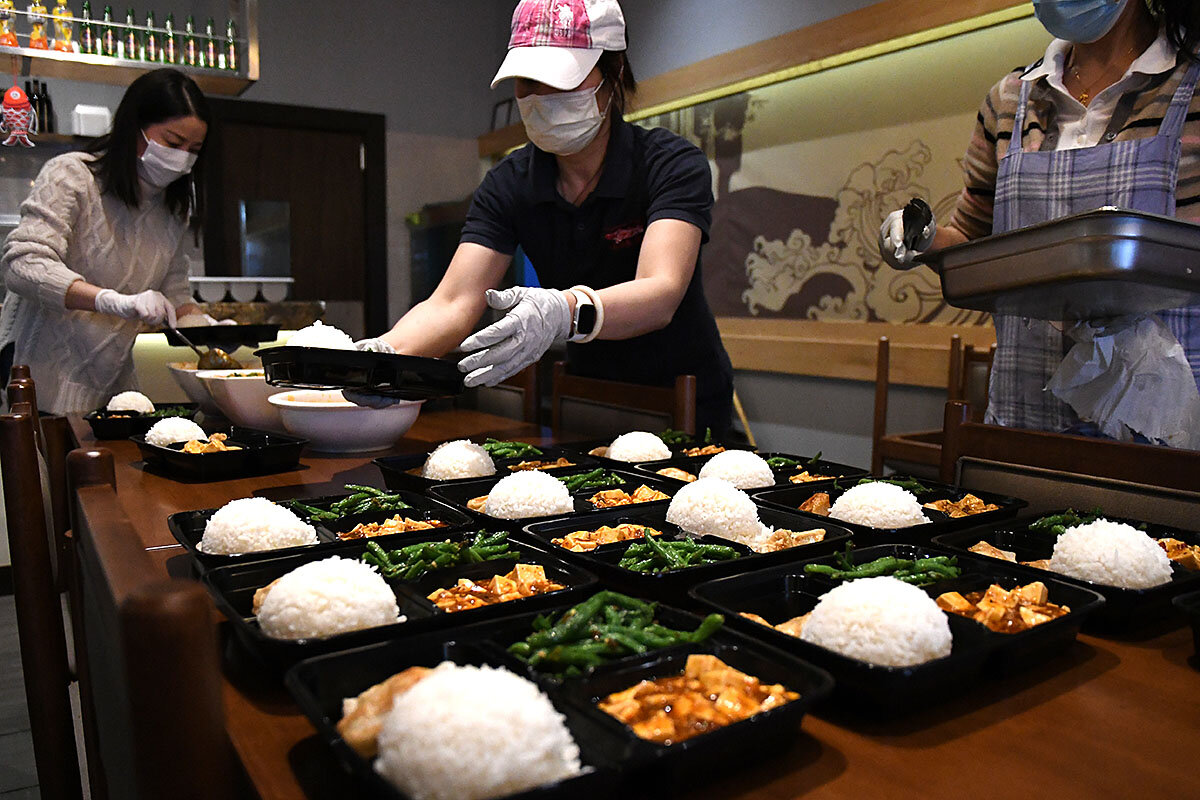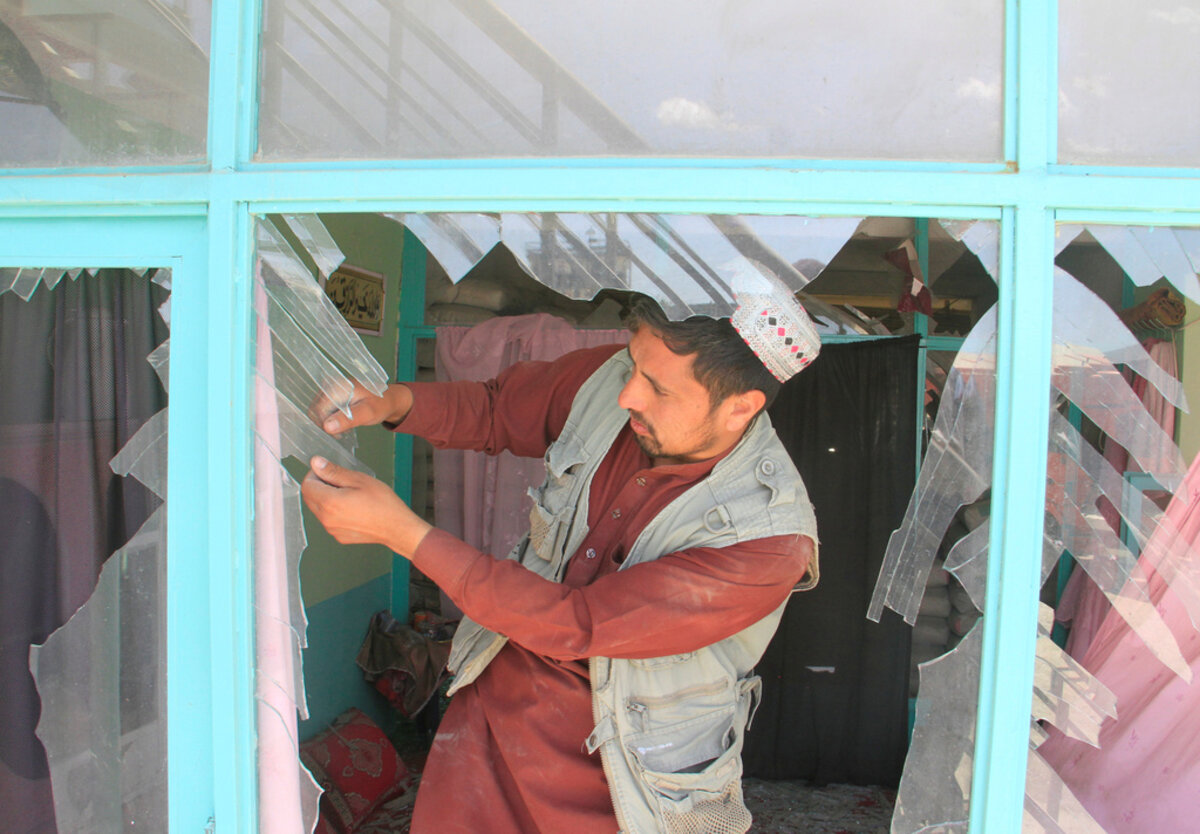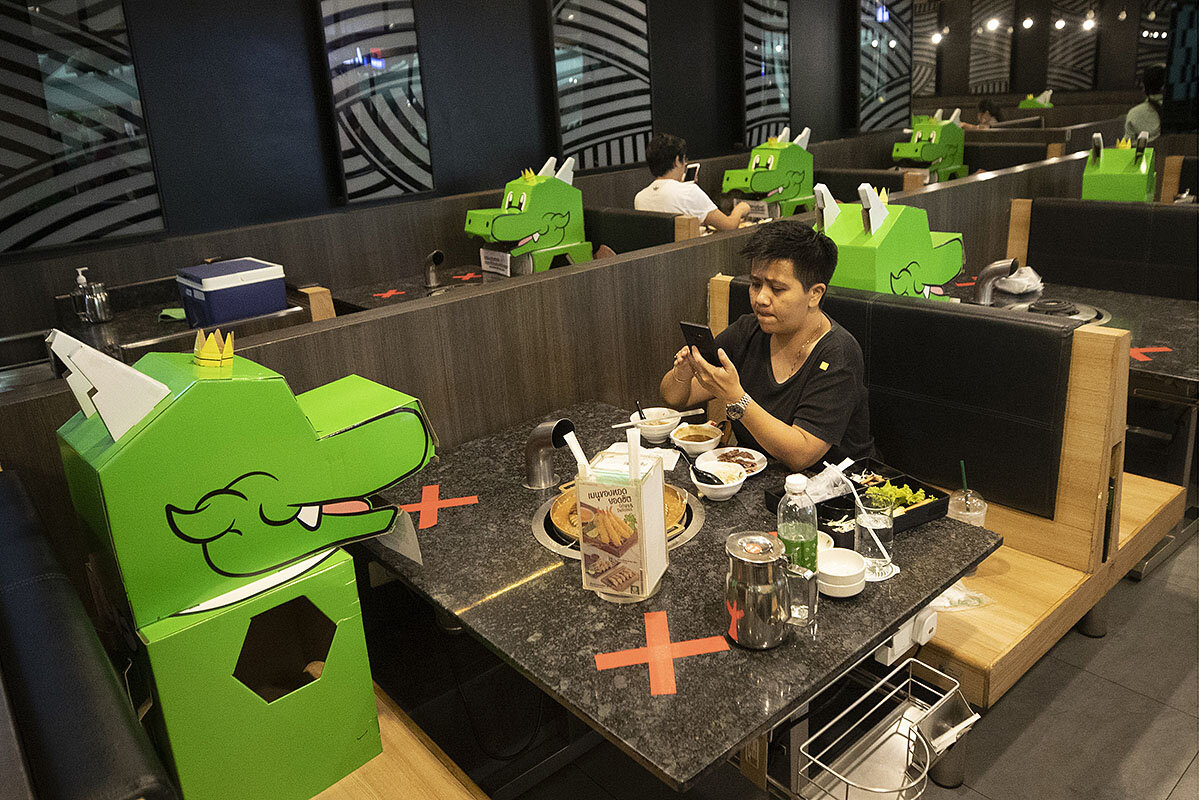Global solutions can be personal. As China and the U.S. argue, we wanted to look at how groups of Chinese Americans are working to connect doctors, gear, and donors between the two countries.
Monitor Daily Podcast
- Follow us:
- Apple Podcasts
- Spotify
- RSS Feed
- Download
 Clayton Collins
Clayton Collins
Today we look at U.S.-China relations at the human level, how colleges are rethinking their offerings, introspection after a Georgia killing, small businesses’ new realities, and picture books to enliven the little ones.
As lockdowns lift, public health officials stress that loosening – a complex process – should come with caution.
The world will still need an abundance of PPE – not the protective gear that’s been in maddeningly short supply, but the exhibiting of three constructive values. Some have already been displayed.
Pragmatism: In January, while some leaders floundered, others worked methodically. In India’s Kerala state, K.K. Shailaja, a science teacher turned health minister, convened a response team before her state of 35 million people had any confirmed cases of COVID-19, adopting World Health Organization protocols and keeping the outbreak manageable.
Practicality: Mongolia’s government was also proactive, advocating social restrictions as the coronavirus rampaged in parts of neighboring China. Measures as simple as hand-washing helped suppress infection rates, reports Global Press Journal, citing national health officials. (The country has also seen a sharp decline in other illnesses attributed to poor hygiene.)
Empathy: Examples of human kindness have flowed. But understanding should extend further. Persistent guidance can come without judgment, writes Harvard epidemiologist Julia Marcus in The Atlantic, though that can be a test when social behavior gets politicized – in both directions.
“[D]espite our best efforts,” Dr. Marcus writes, “some people will choose to engage in higher-risk activities – and instead of shaming them, we can provide them with tools to reduce any potential harms. ... Meet up outside. Don’t share food or drinks. Wear masks. Keep your hands clean. And stay home if you’re sick.”
A note to readers: We’ve been working on a refresh of the Daily, based on interviews with some of you. Watch for some design and format changes in Wednesday’s issue.










